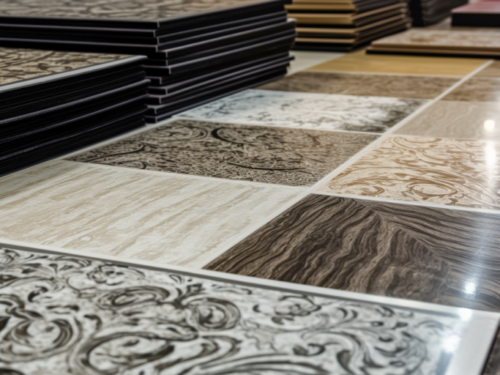
What is the disadvantage of vinyl flooring?
Vinyl flooring has become one of the most popular flooring options in recent years. It’s durable, affordable, and comes in a wide range of styles and designs. However, like any flooring option, vinyl flooring also has its own set of disadvantages. But what is the disadvantage of vinyl flooring? Are there reasons you shouldn’t pick vinyl flooring?
It depends. Let’s talk about the cons of vinyl flooring.
1. Not Eco-Friendly
One of the significant drawbacks of vinyl flooring is its environmental impact. Vinyl flooring is made from petroleum-based materials and is not biodegradable, which means it poses a significant threat to the environment. The manufacturing process of vinyl flooring is also energy-intensive and produces a lot of waste, which can lead to landfills. So, if you are an environment-conscious person, vinyl flooring may not be the best choice for you.
Related Content: Is glossy or matte hardwood flooring better?
2. Susceptible to Scratches
While vinyl flooring is durable, it is susceptible to scratches. Heavy furniture, pet claws, and sharp objects can cause damage to its surface. Moreover, once scratches or damages occur, they cannot be repaired. This means that you may need to replace the entire flooring in that specific area or room.
Related Content: What type of hardwood flooring doesn’t scratch?
3. Chemical Off-Gassing
Vinyl flooring is made from various chemicals, which can include phthalates (which can emit volatile organic compounds (VOCs)). These can be harmful to human health, mainly if exposed to them in significant amounts over time. The chemicals can cause respiratory issues, headaches, and can even lead to cancer. Therefore, it’s crucial to buy phthalate-free vinyl flooring for your home.
Related Content: How much do contractors charge to lay vinyl flooring?
4. Noisy
Vinyl flooring can be quite noisy, especially when walking with high heels or shoes with hard soles. This can be a major issue in apartments or upstairs rooms where the sound can easily travel through the walls and floors. Moreover, it’s not a comfortable choice for spaces where acoustics are essential, such as recording studios.
5. Lower Resale Value
If you are considering selling your home in the future, you should know that vinyl flooring has a lower resale value compared to other flooring options, such as hardwood or tile. Many homebuyers prefer natural materials and view vinyl flooring as a cheaper and less desirable choice of flooring.
Vinyl flooring has its advantages and disadvantages, and you should weigh them carefully before deciding if it’s the right choice for your home. While it’s affordable and easy to install, the environmental impact, susceptibility to scratches, chemical off-gassing, noise, and lower resale value should not be overlooked. Therefore, it’s crucial to research and understand all of the pros and cons of vinyl flooring before making your final decision.


